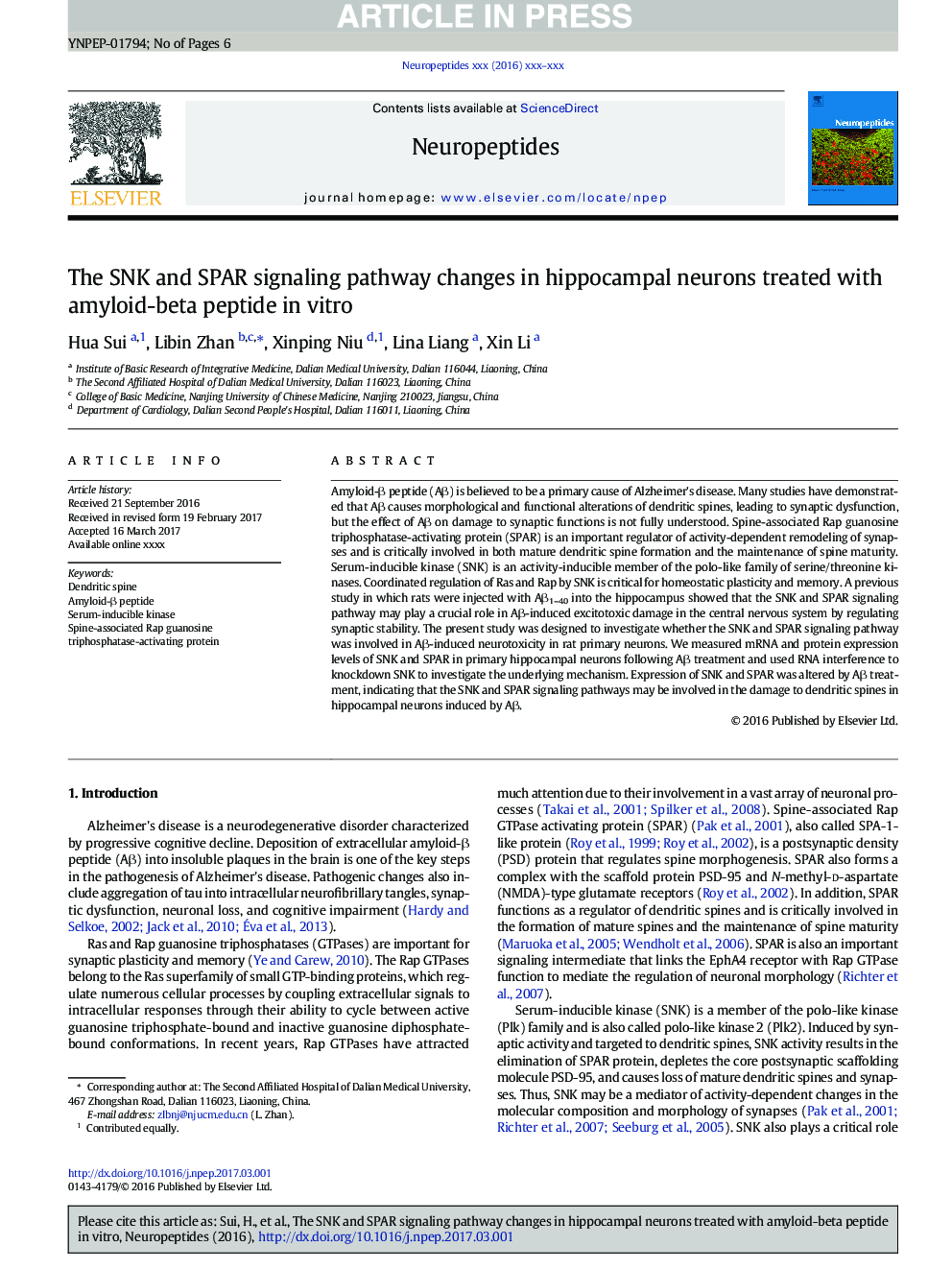| Article ID | Journal | Published Year | Pages | File Type |
|---|---|---|---|---|
| 8633629 | Neuropeptides | 2017 | 6 Pages |
Abstract
Amyloid-β peptide (Aβ) is believed to be a primary cause of Alzheimer's disease. Many studies have demonstrated that Aβ causes morphological and functional alterations of dendritic spines, leading to synaptic dysfunction, but the effect of Aβ on damage to synaptic functions is not fully understood. Spine-associated Rap guanosine triphosphatase-activating protein (SPAR) is an important regulator of activity-dependent remodeling of synapses and is critically involved in both mature dendritic spine formation and the maintenance of spine maturity. Serum-inducible kinase (SNK) is an activity-inducible member of the polo-like family of serine/threonine kinases. Coordinated regulation of Ras and Rap by SNK is critical for homeostatic plasticity and memory. A previous study in which rats were injected with Aβ1-40 into the hippocampus showed that the SNK and SPAR signaling pathway may play a crucial role in Aβ-induced excitotoxic damage in the central nervous system by regulating synaptic stability. The present study was designed to investigate whether the SNK and SPAR signaling pathway was involved in Aβ-induced neurotoxicity in rat primary neurons. We measured mRNA and protein expression levels of SNK and SPAR in primary hippocampal neurons following Aβ treatment and used RNA interference to knockdown SNK to investigate the underlying mechanism. Expression of SNK and SPAR was altered by Aβ treatment, indicating that the SNK and SPAR signaling pathways may be involved in the damage to dendritic spines in hippocampal neurons induced by Aβ.
Keywords
Related Topics
Life Sciences
Biochemistry, Genetics and Molecular Biology
Endocrinology
Authors
Hua Sui, Libin Zhan, Xinping Niu, Lina Liang, Xin Li,
